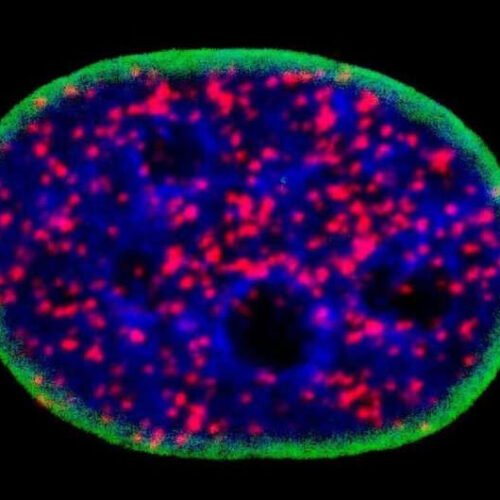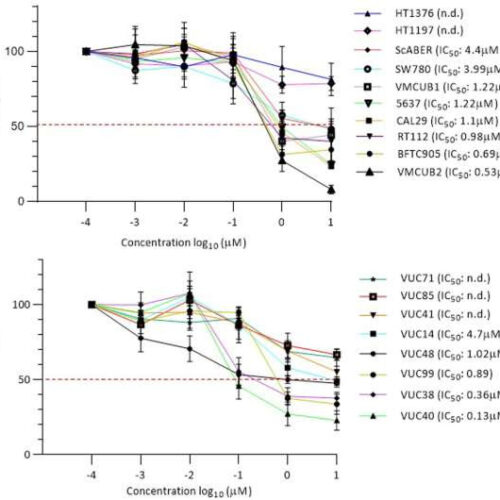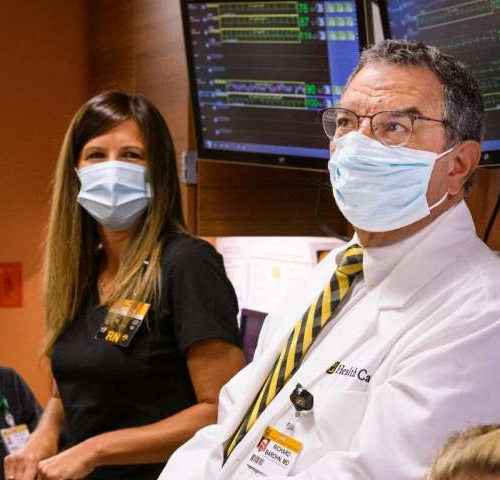Two of the most common genetic changes that cause cells to become cancerous, which were previously thought to be separate and regulated by different cellular signals, are working in concert, according to new research from the University of Wisconsin–Madison. To date, researchers have focused on finding drugs that block one or the other to treat cancer. Understanding...
Tag: <span>effective drugs</span>
Unexpected link between most common cancer drivers may yield more effective drugs
by Chris Barncard, University of Wisconsin-Madison Outlined in green, this nucleus of a cancerous cell contains DNA in blue and red blobs marking the cell’s p53 protein binding with parts of the Atk cellular signaling pathway, a partnership that will prevent the cancerous cell from dying as it should and instead prolong its life and...
Therapeutically effective drugs for bladder cancer identified
by Johannes Angerer, Medical University of Vienna Response of commercially available and patient-derived BC cell lines to varying concentrations of clofarabine. (A) Commercially available cell lines representing different intrinsic BC subtypes were treated with variable concentrations of clofarabine for 48 h. Apart from HT1367 and HT1197, all tested BC lines showed a concentration-dependent decrease of...
Study reveals most effective drugs for common type of neuropathic pain
by University of Missouri Richard Barohn, MD, is the lead researcher and executive vice chancellor for health affairs at the University of Missouri More than 20 million people in the U.S. suffer neuropathic pain. At least 25% of those cases are classified as unexplained and considered cryptogenic sensory polyneuropathy (CSPN). There is no information to guide...



